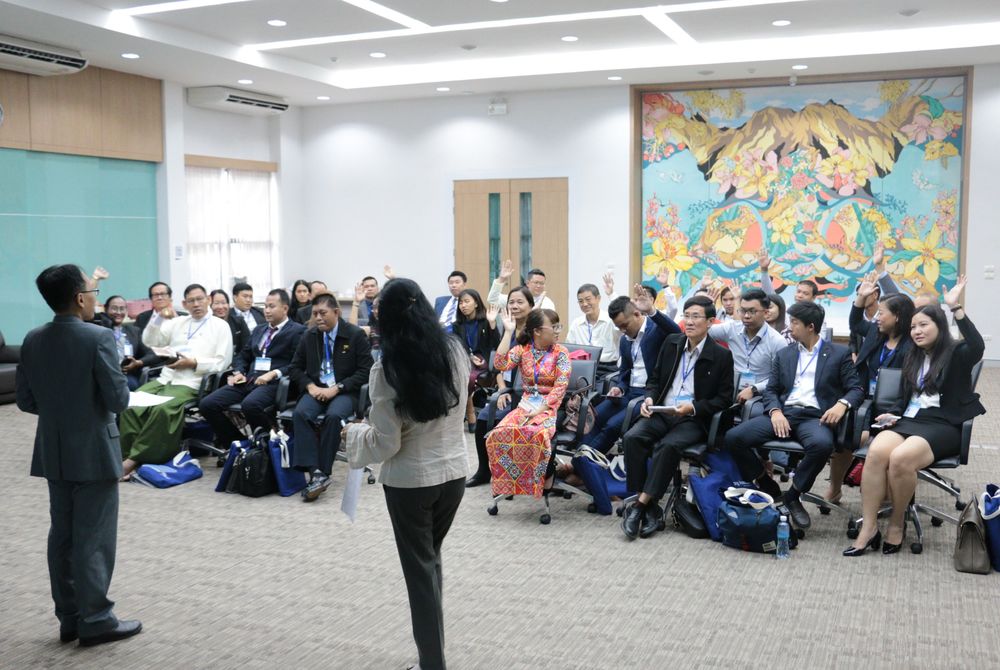Thirty-two mid-level officials from relevant government agencies such as the Ministry of Transport, Public Works, and Port Authority; as well as members of freight forwarders associations, transport and logistics companies, and Chambers of Commerce and Industry from Cambodia, Lao PDR, Myanmar, Thailand and Vietnam, joined the regional training on Green Freight and Logistics Management 2018. The one-week training, which opened on September 17, 2018 at the MI Residential Training Center in Khon Kaen, Thailand, was supported by the Mekong-Republic of Korea Cooperation Fund (MKCF).
In the inaugural address, Mr. Madhurjya Kumar Dutta, Director of MI’s Trade and Investment Facilitation (TIF) Department, explained that most of the logistics companies in the region use old trucks, and thus they may not be in a position to go for green freight certification yet. The training introduced other forms of recognition schemes, including “green mark” standards in logistics service operations. “This is an important area for us – the national governments and regional organizations – to work on,” he said in reference to the need to promote an efficient, environment-friendly, sustainable and safe transport and logistics sector in the Mekong region.
The training took off from the baseline study that MI conducted to establish baseline data on aspects of green freight and logistics among logistics service providers in the Mekong countries. Participants were introduced to key concepts of green freight and logistics, frameworks for assessing the strategic opportunities of improving the environmental performance of freight transport and logistics companies, energy efficiency, and measures to decarbonize fuels, among other things. A software program on Green Logistics Service Quality Standards (GLSQS) was introduced to the participants, who discussed the manner in which it could be used to monitor green freight and logistics activities at company level.
Following the training, the participants are expected to carry out action plans, which they prepared at the end of the training program, in their respective countries as part of knowledge transfer. The action plans ranged from conducting local workshops to introduce the GLSQS software program to using the software by companies to monitor their environmental performance. The MI team will be providing technical assistance and support in the implementation of these action plans.








